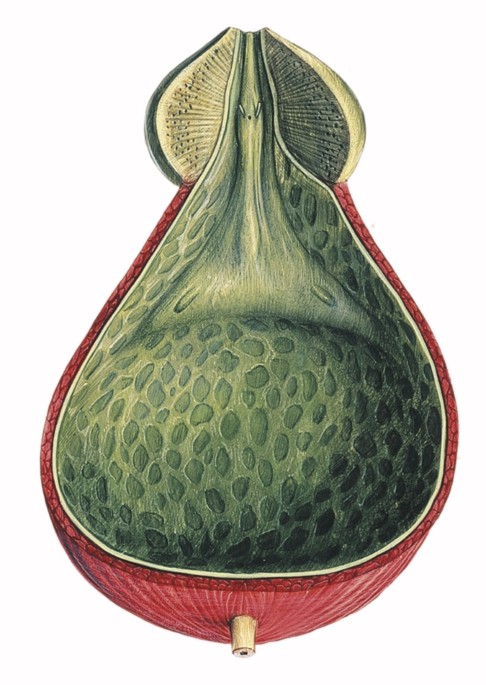
Microbiome — the 'unforeseen organ'
- Select a language for the TTS:
- UK English Female
- UK English Male
- US English Female
- US English Male
- Australian Female
- Australian Male
- Language selected: (auto detect) - EN
Play all audios:
The advent of molecular methods for the identification and characterization of the microbiome has led researchers to understand the role of the microbiota in various clinical conditions.
Research by Cavarretta and colleagues has revealed the presence of microbial dysbiosis and its potential relationship with pathophysiology in the prostate tumour microenvironment. This
finding could potentially enable future investigations that clarify the role of the microbiota in the development of prostate cancer and its future management, from a different perspective.
Access through your institution Buy or subscribe This is a preview of subscription content, access via your institution RELEVANT ARTICLES Open Access articles citing this article. *
IDENTIFICATION OF LOW OXYGEN-TOLERATING BACTERIA IN PROSTATE SECRETIONS OF CANCER PATIENTS AND DISCUSSION OF POSSIBLE AETIOLOGICAL SIGNIFICANCE * Roshni Bhudia * , Amar Ahmad * … Tim Oliver
_Scientific Reports_ Open Access 09 November 2017 ACCESS OPTIONS Access through your institution Access Nature and 54 other Nature Portfolio journals Get Nature+, our best-value
online-access subscription $32.99 / 30 days cancel any time Learn more Subscribe to this journal Receive 12 print issues and online access $209.00 per year only $17.42 per issue Learn more
Buy this article * Purchase on SpringerLink * Instant access to full article PDF Buy now Prices may be subject to local taxes which are calculated during checkout ADDITIONAL ACCESS OPTIONS:
* Log in * Learn about institutional subscriptions * Read our FAQs * Contact customer support REFERENCES * Whiteside, S. A. _ et al_. The microbiome of the urinary tract — a role beyond
infection. _Nat. Rev. Urol._ 12, 81–90 (2015). Article Google Scholar * Siegel, R. L. _ et al_. Cancer statistics 2017. _CA_ _Cancer J. Clin._ 67, 7–30 (2017). Article Google Scholar *
National Cancer Institute. Surveillance, Epidemiology and End Results Program. Cancer stat facts: prostate cancer. _NIH_ http://www.seer.cancer.gov/statfacts/html/prost.html (2014). * Wolk,
A. Diet, lifestyle and risk of prostate cancer. _Acta Oncol._ 44, 277–281 (2005). Article Google Scholar * Amirian, E. S. _ et al_. Potential role of gastrointestinal microbiota
composition in prostate cancer risk. _Infect. Agent Cancer_ 8, 42 (2013). Article Google Scholar * Cavarretta, I. _ et al_. The microbiome of the prostate tumor microenvironment. _Eur.
Urol._ http://dx.doi.org/10.1016/j.eururo.2017.03.029 (2017). * Schwabe, R. F. _ et al_. The microbiome and cancer. _Nat. Rev. Cancer_ 13, 800–812 (2013). Article CAS Google Scholar
Download references AUTHOR INFORMATION AUTHORS AND AFFILIATIONS * Muhammed A.P. Manzoor and Punchapaddy–Devasya Rekha are at the Yenepoya Research Centre, Yenepoya University, Deralakatte,
Mangalore, Karnataka 575018, India., Muhammed A.P. Manzoor & Punchapaddy–Devasya Rekha Authors * Muhammed A.P. Manzoor View author publications You can also search for this author
inPubMed Google Scholar * Punchapaddy–Devasya Rekha View author publications You can also search for this author inPubMed Google Scholar CORRESPONDING AUTHOR Correspondence to Muhammed A.P.
Manzoor. ETHICS DECLARATIONS COMPETING INTERESTS The authors declare no competing financial interests. RIGHTS AND PERMISSIONS Reprints and permissions ABOUT THIS ARTICLE CITE THIS ARTICLE
Manzoor, M., Rekha, P. Microbiome — the 'unforeseen organ'. _Nat Rev Urol_ 14, 521–522 (2017). https://doi.org/10.1038/nrurol.2017.97 Download citation * Published: 27 June 2017 *
Issue Date: September 2017 * DOI: https://doi.org/10.1038/nrurol.2017.97 SHARE THIS ARTICLE Anyone you share the following link with will be able to read this content: Get shareable link
Sorry, a shareable link is not currently available for this article. Copy to clipboard Provided by the Springer Nature SharedIt content-sharing initiative